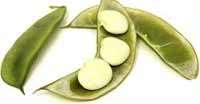pupa
Translingual
Noun
pupa
- Used as a specific epithet; resembling an insect in its pupal stage of development.
Derived terms
- Braniella pupa
- Cerithiopsis pupa
- Cochlodinium pupa
- Echinorhynchus pupa
- Ehrenbergina pupa
- Gigantopora pupa
- Horologica pupa
- Leptopilos pupa
- Lernanthropus pupa
- Megalospora pupa
- Meganthribus pupa
- Micrathena pupa
- Palaina pupa
- Pseudomyrmex pupa
- Puperita pupa
- Thomisops pupa
- Travisia pupa
- hirtipupa
- pictipupa
English
Pronunciation
- IPA(key): /ˈpjuːpə/
Audio (US) (file) - Rhymes: -uːpə
Noun
pupa (plural pupas or pupae or pupæ)
- An insect in the development stage between larva and adult.
Hyponyms
Translations
insect
|
|
Irish
Declension
Declension of pupa
Fourth declension
|
Bare forms
|
Forms with the definite article
|
Derived terms
- pupach (“pupal”, adjective)
- pupaigh (“pupate”, intransitive verb)
- pupalann f (“puparium”)
Mutation
| Irish mutation | ||
|---|---|---|
| Radical | Lenition | Eclipsis |
| pupa | phupa | bpupa |
| Note: Some of these forms may be hypothetical. Not every possible mutated form of every word actually occurs. | ||
Further reading
- "pupa" in Foclóir Gaeilge-Béarla, An Gúm, 1977, by Niall Ó Dónaill.
- Entries containing “pupa” in English-Irish Dictionary, An Gúm, 1959, by Tomás de Bhaldraithe.
- Entries containing “pupa” in New English-Irish Dictionary by Foras na Gaeilge.
Italian
Latin
Alternative forms
Etymology
Feminine gender of pūpus.
Pronunciation
- (Classical) IPA(key): /ˈpuː.pa/
Noun
pūpa f (genitive pūpae); first declension
Inflection
First declension.
| Case | Singular | Plural |
|---|---|---|
| Nominative | pūpa | pūpae |
| Genitive | pūpae | pūpārum |
| Dative | pūpae | pūpīs |
| Accusative | pūpam | pūpās |
| Ablative | pūpā | pūpīs |
| Vocative | pūpa | pūpae |
Descendants
- Albanian: pupë (possibly)
- Catalan: popa, pupa (borrowed)
- English: pupa (borrowed), puppet (via Old French), poppet
- Dutch: pop (borrowed)
- Esperanto: pupo
- French: pupe (borrowed), poupée, poupin
- German: Puppe (borrowed)
- Icelandic: púpa (borrowed)
- Italian: pupa (borrowed), poppa
- Old French: poupette
- Portuguese: pupa (borrowed)
- Romanian: pupă (borrowed), păpușă
- Spanish: pupa (borrowed)
References
- pupa in Charlton T. Lewis and Charles Short (1879) A Latin Dictionary, Oxford: Clarendon Press
- pupa in Gaffiot, Félix (1934) Dictionnaire Illustré Latin-Français, Hachette
- pupa in Harry Thurston Peck, editor (1898) Harper's Dictionary of Classical Antiquities, New York: Harper & Brothers
- pupa in William Smith et al., editor (1890) A Dictionary of Greek and Roman Antiquities, London: William Wayte. G. E. Marindin
Latvian

pupas
Declension
Declension of pupa (4th declension)
| singular (vienskaitlis) | plural (daudzskaitlis) | |
|---|---|---|
| nominative (nominatīvs) | pupa | pupas |
| accusative (akuzatīvs) | pupu | pupas |
| genitive (ģenitīvs) | pupas | pupu |
| dative (datīvs) | pupai | pupām |
| instrumental (instrumentālis) | pupu | pupām |
| locative (lokatīvs) | pupā | pupās |
| vocative (vokatīvs) | pupa | pupas |
Polish
Pronunciation
- IPA(key): /ˈpu.pa/
Declension
Portuguese
Romanian
Etymology
From a Vulgar Latin *puppāre, from puppa (“breast, teat, nipple”), from Latin pūpa; or perhaps formed from a hypothetical, now lost noun *pupă in early Romanian, from this Latin word. Compare Italian poppare (“to suckle”), poppa (“boob, breast”), Catalan and Occitan popar (“to suckle”), popa (“boob, breast”). Less likely from or linked to pup (“bud”).
Pronunciation
- IPA(key): [puˈpa]
Verb
a pupa (third-person singular present pupă, past participle pupat) 1st conj.
Conjugation
conjugation of pupa (first conjugation, no infix)
| infinitive | a pupa | ||||||
|---|---|---|---|---|---|---|---|
| gerund | pupând | ||||||
| past participle | pupat | ||||||
| number | singular | plural | |||||
| person | 1st person | 2nd person | 3rd person | 1st person | 2nd person | 3rd person | |
| indicative | eu | tu | el/ea | noi | voi | ei/ele | |
| present | pup | pupi | pupă | pupăm | pupați | pupă | |
| imperfect | pupam | pupai | pupa | pupam | pupați | pupau | |
| simple perfect | pupai | pupași | pupă | puparăm | puparăți | pupară | |
| pluperfect | pupasem | pupaseși | pupase | pupaserăm | pupaserăți | pupaseră | |
| subjunctive | eu | tu | el/ea | noi | voi | ei/ele | |
| present | să pup | să pupi | să pupe | să pupăm | să pupați | să pupe | |
| imperative | — | tu | — | — | voi | — | |
| affirmative | pupă | pupați | |||||
| negative | nu pupa | nu pupați | |||||
Spanish
This article is issued from
Wiktionary.
The text is licensed under Creative
Commons - Attribution - Sharealike.
Additional terms may apply for the media files.